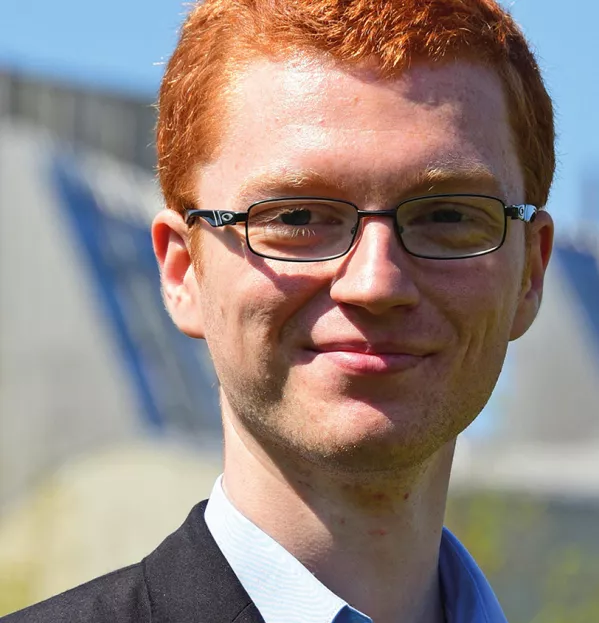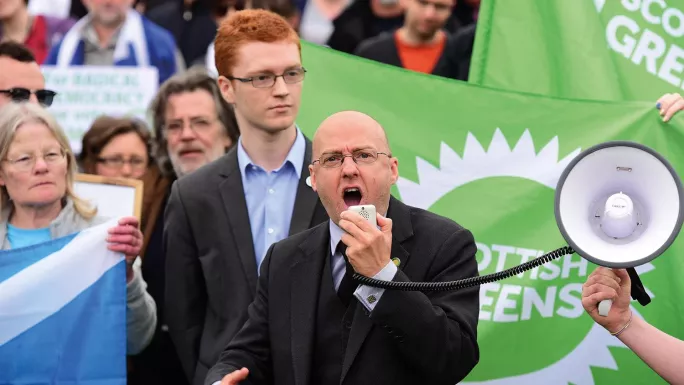He may be Green, but is he an education policy novice?

Being the youngest-ever MSP has its advantages, says Ross Greer, who was elected last year at the tender age of 21. Now, the Scottish Green Party’s education spokesperson, the MSP for the West of Scotland region, says his age makes it easier for him to engage with young people.
But while older MSPs can often recall the minutiae of political events they have experienced first-hand, for Greer - who turns 23 next month - this is a history that has had to be learned. He’s also had to put up with lazy heckles, with one Conservative MSP repeatedly calling him “child” during a debate.
Tes Scotland suspects it would take more than that to put Greer off his stride. He is confident, articulate and opinionated. He also exudes a strong sense of moral purpose; he spent the first week of Easter recess visiting the Italian island of Lampedusa, which sees a boatload of refugees arriving each week. His goal is to raise awareness of their plight back home.
Here is how he proposes Scottish education should be improved:
1. Make more money available to put teachers ‘back in classrooms’
According to Greer, the single biggest issue in education “is one of resources”. He wants to see “a fairer funding deal for local councils”, so that they could raise their own cash to invest in education, echoing his party’s calls for the council tax to be scrapped.
Greer says: “Putting teachers back in classrooms, and resources back in schools, is something [councils] could then do; essentially, what we would be doing is reversing the cuts.”
Earlier this year, the Greens secured £160 million more for Scottish councils in the budget by negotiating a deal that saw the 40p rate of income tax threshold frozen at £43,000.
2. Boost pupils’ civic education
Civic education should be a core part of the curriculum, says Greer. “Now we have lowered the voting age to 16, it should be obvious that you should not have to take modern studies in order to know what your local council does or what we do at Holyrood.”
There should be a minimum level of personal and social education (PSE) content that young people should expect to receive at school, he argues. Greer stops short of calling for schools to be compelled to deliver a minimum amount of PSE, saying “that would go against the Curriculum for Excellence principles”, but that there should be a minimum in terms of content covered.
He says: “[PSE] is not being delivered with anything approaching consistency and huge numbers of young people are not receiving the essential life skills they deserve to receive.”

3. Improve ASN training
Children with additional support needs (ASN), their families and the teachers that work with them, are being failed by the system, says Greer.
Figures released by education secretary John Swinney show that the number of ASN teachers in Scotland stood at 2,896 in 2016, down by 40 on the previous year and a 14.8 per cent decrease from a high of 3,402 in 2009. Again, Greer believes this could be reversed if local authorities had power to raise their own cash.
But resourcing is not the only issue - he also criticises initial teacher education institutions for having a “tick box” attitude to ASN, and called for better CPD generally. Holyrood’s education committee was told recently that a member of school support staff working with a child with Asperger syndrome had been told to watch sitcom The Big Bang Theory as a form of training. “Putting a young person into a mainstream school does not mean they are included,” Greer says.
4. Reduce class sizes
Lowering classes sizes would not only improve outcomes for pupils, but would also help address the issue of excessive teacher workload, according to Greer. He says: “Lowering class sizes would make the role of the teacher just a bit more manageable.”
‘The governance review is about this government pushing their centralisation agenda’
Greer acknowledges that research on the effects of smaller classes is mixed; earlier this month, Pisa boss Andreas Schleicher advised that improving CPD should be a greater priority than reducing classes. But Greer insists that feedback from teachers is “unequivocal” that “improving pupil-teacher ratios would have an impact on educational outcomes and the wellbeing of teachers”.
5. Preserve local government’s role
It might be harsh to say that the Scottish government’s governance review is a waste of everyone’s time, but such a claim would only be “a bit too harsh”, says Greer.
“Teachers, the unions, parents, young people themselves - no one was standing up in the approach to the Holyrood elections saying ‘The biggest issue facing Scottish education is structures and governance’,” he says.
The big issues then were the same as they are now, he says: resources, workload, staffing pressures, budgets, CfE and assessment.
The Scottish government has said that it wants to give headteachers more power and for more decisions about education to be taken at school level. But, according to Greer, the review is about “this government pushing their centralisation agenda”.
You need a Tes subscription to read this article
Subscribe now to read this article and get other subscriber-only content:
- Unlimited access to all Tes magazine content
- Exclusive subscriber-only stories
- Award-winning email newsletters
Already a subscriber? Log in
You need a subscription to read this article
Subscribe now to read this article and get other subscriber-only content, including:
- Unlimited access to all Tes magazine content
- Exclusive subscriber-only stories
- Award-winning email newsletters